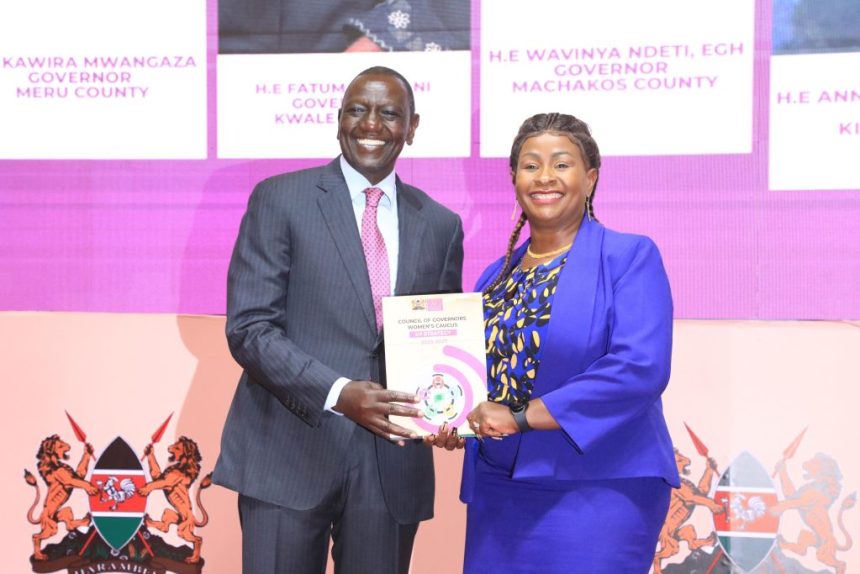The Council of Governors (COG) women caucus has launched G7 Strategy chapter in New York.
The strategy which had earlier been launched in Kenya brings together the seven elected women governors with an aim of working together to deliver the promise of devolution through its Socioeconomic Development, Political Strategy, Good governance, Accountability and Access to Justice and Institutional strengthening pillars.
This will increase their chances of re-election and improve the opportunity to elect more women governors past the two thirds constitutional gender threshold.
The aim of the New York chapter, launch which was done in collaboration with Oxfam USA, is to mobilize various partners towards supporting the strategies implementation.
The Council of Governors Chairperson, Anne Waiguru, said that the recommendations made at the forum will enable the sustainable implementation of the strategy.
Some of them included the need to develop a mentorship program to support women leaders at the grassroots level, establishment of a strong communication and branding strategy, and identification of potential and able women leaders to be trained to take up leadership positions.
The forum also recommended the strengthening of women’s organizations for them to support the actualization of the G7 strategy.
Waiguru said that the G7 Strategy will also be guiding the current women governors in remaining relevant and responsive to the needs of the community and providing clarity and priorities for intervention.
She noted the great need to utilize the current women Governors as a springboard for other aspiring women leaders and the need to widen women’s representation base from the Members of Parliament and ensure they are propelled to the next level of leadership.
Waiguru who is also the Governor of Kirinyaga County and the first woman to be re-elected for the position, said there was need to develop sustainable strategies for funding for the implementation of the strategy.
She recommended for the expansion of the G7 approach to be a Pan African movement in order to inspire other Countries with similar governance systems to strengthen women’s political participation and representation.
The G7 Strategy’s vision is to model women governors as the transformative leaders and
champions of inclusive political representation and participation.
The launch that was held at Bahai International Community Center was attended by Governors Susan Kihika-Nakuru, Wavinya Ndeti-Machakos, Cecily Mbarire-Embu and Gladys WangaHomabay and Idah Odinga-wife to former Prime Minister Raila Odinga.
Women leaders drawn from other African countries also attended.
During the G7 strategy launch in Kenya two weeks ago, Waiguru had noted the need to accelerate actions on bridging the glaring gender gaps in top leadership positions stating that women are not just beneficiaries of development efforts but are powerful agents of change, catalysts for economic growth and pillars of societal stability thus the need to invest in their empowerment.
President Ruto who presided over the G7 launch in Kenya affirmed his commitment to gender equality and said that he will support alternative gender representation at the topmost leadership positions as one of the means of attaining the one third gender representation thresholds.
He promised to push for the implementation of recommendations of the National Dialogue Committee (NADCO) report that seeks to achieve the elusive gender principal.
The report has recommended the amendment of the Elections Act 2011 to provide for submission of party lists that comply with the two-third gender principle and to provide for establishment of the women inclusion and Political Participation Fund for purposes of financing education and training, mentorship and capacity building, including support for women seeking elective positions.
Currently there are a total of 21 female senators in the 67-member House. Of the number, three were elected while 18 were nominated by parties.
In the National Assembly, only 80 members are women out of the 349 lawmakers. A total of 29 were elected from the 290 constituencies while another 47 were elected as County Woman Representative while four were nominated by parties.



